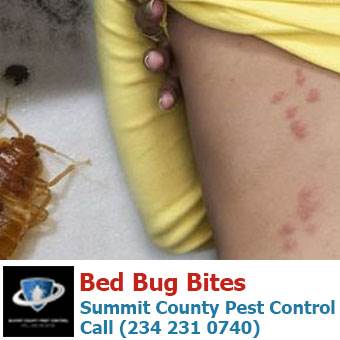Bed Bug Exterminator Houston Near Me: Quick and Efficient Bed Bug Solutions
Bed Bug Exterminator Houston Near Me: Quick and Efficient Bed Bug Solutions
Blog Article
Reliable Bug Control Steps to Shield Your Yard and Plants
In the realm of gardening, the consistency of a well-tended garden can typically be disrupted by undesirable pests that endanger the wellness and vigor of plants. Applying efficient bug control measures not only safeguards the garden's aesthetic allure but additionally plays a critical function in maintaining the plants' health.
Natural Insect Repellents

An additional reliable all-natural pest repellent is diatomaceous earth, a grainy material made from fossilized marine microorganisms. Diatomaceous earth works by literally damaging insects with its unpleasant structure, making it an exceptional alternative for controlling bugs like slugs, beetles, and caterpillars. In addition, planting buddy plants like marigolds, lavender, or basil can aid fend off bugs because of their strong scents or natural chemical compounds.
Beneficial Insects for Pest Control

One more beneficial bug is the parasitical wasp, which lays its eggs inside parasite insects, ultimately killing them. Ground beetles are excellent for managing caterpillars, snails, and slugs. Hoverflies, typically mistaken for bees as a result of their similar look, feed upon aphids, thrips, and caterpillars.
To attract useful bugs to your yard, you can plant a diverse series of flowering plants, such as dill, fennel, and yarrow, which provide nectar and plant pollen for grown-up bugs. Additionally, stay clear of utilizing broad-spectrum pesticides that can damage both hazardous and valuable insects. By creating an inviting setting for these advantageous pests, you can reduce the demand for chemical pesticides and promote a much healthier, much more balanced yard ecosystem.
Buddy Growing Approaches
When aiming to enhance the efficiency of helpful insects in your garden for natural insect control, taking into consideration friend growing methods can additionally optimize the environment equilibrium. Friend planting includes tactically positioning specific plants alongside each other to maximize their shared advantages, such as preventing parasites, bring in helpful insects, or improving vitamins and mineral uptake - bed bug exterminator houston near me. One prominent instance is planting marigolds alongside tomatoes to drive away nematodes and other dangerous insects while also attracting pollinators
Planting catch plants like nasturtiums can draw away pests away from your major crops, offering as sacrificial plants that protect your important fruit and vegetables. By executing companion growing strategies, you can develop a diverse and harmonious garden community that naturally controls bugs while advertising plant health and wellness and performance.
DIY Pest Control Solutions
To effectively take care of insects in your yard, executing do-it-yourself pest control remedies can be an economical and environmentally pleasant approach. One usual DIY pest bed bug exterminator houston services control remedy is producing self-made insecticidal soaps by blending mild soap with water to regulate soft-bodied bugs like aphids, termites, and whiteflies. In addition, presenting useful pests such as ladybugs, lacewings, and aggressive wasps can assist normally control pest populations in your yard. Establishing physical barriers like row covers or netting can also avoid bugs like caterpillars from damaging your plants.
Friend growing specific herbs and blossoms like marigolds, basil, and lavender can aid push back bugs and attract advantageous insects. By including these Do it yourself insect control services right into your horticulture routine, you can safeguard your garden and plants without counting on extreme chemicals.
Environmentally-Friendly Pesticides

One more efficient choice is diatomaceous earth, an all-natural material made from fossilized water organisms, which can be sprinkled around plants to regulate slugs, snails, and other crawling insects. Additionally, insecticidal soaps and oils originated from plant-based sources work for managing soft-bodied parasites like aphids, termites, and whiteflies.
Conclusion
To conclude, effective pest control procedures such as natural repellents, useful pests, friend planting strategies, DIY options, and environmentally-friendly pesticides are crucial for safeguarding your yard and plants. By executing these approaches, you can protect against damage triggered by bugs and maintain a healthy and flourishing garden community. It is crucial to take into consideration the lasting influence of making use of chemicals and decide for even more lasting and environment-friendly choices to ensure the health and well-being of your plants and the environment.
Report this page